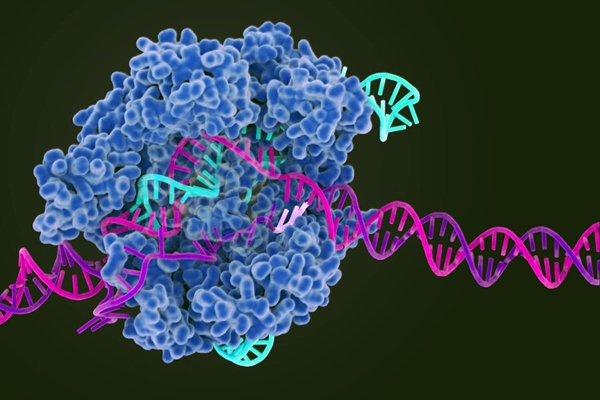10 July 2017. One of the key inventors of a genome editing technique known as Crispr is joining a program that promises to ease licensing of its patents for the technology. The Broad Institute, a medical research center affiliated with Harvard University and MIT in Cambridge, Massachusetts is offering its Crispr patents to MPEG LA, an organization that aims to make technology licensing easier for all parties.
Crispr — short for clustered regularly interspaced short palindromic repeats — is a genome-editing process based on bacterial defense mechanisms that use RNA to identify and monitor precise locations in DNA. The actual editing of genomes with Crispr employs enzymes that cleave DNA strands at the desired points, with Crispr-associated protein 9, or Cas9, being the enzyme used for the longest period.
MPEG LA is an organization in Denver that pools patents for related technologies into a one-stop service that the group says makes it easier for businesses wanting to license those technologies. Instead of negotiating with individual license holders, companies can get access to patented technologies at one time and a single location, with simplified procedures. MPEG LA was formed in the 1990s to initially make web video standards — the MPEG in its name — more widely available for commercial development, and now applies that model to other specifications and technologies. The organization says it now operates licensing programs covering 11,000 patents for some 200 licensors and 6,000 licensees.
Broad Institute is offering its 22 Crispr patents in the U.S. and Europe, owned by Harvard University, MIT, and Rockefeller University in New York to MPEG LA for non-exclusive licensing. The institute already offers its Crispr technologies with non-exclusive licensing for commercial research, such as agriculture, but not human therapies. For therapeutics, Broad offers two-year exclusive licenses, which in the case of Crispr-Cas9 patents, have concluded.
The institute says more than 60 Crispr and related patents were issued to about 100 inventors by the U.S. Patent and Trademark Office, while the European Patent Office issued another 20 patents to some 30 inventors. Among other patent holders are University of California in Berkeley, which received a European patent for Crispr-Cas9 in March. Broad Institute beat back a challenge to its patent from UC-Berkeley in February, although UC-Berkeley says it’s appealing that decision. Broad received a separate European patent in February for Crispr using a different enzyme, known as Cpf1, for genome editing.
Broad Institute appears to be the only patent holder so far to answer MPEG LA’s call in April for common Crispr licensing. In an MPEG LA statement, Kristin Neuman who directs the group’s biotechnology licensing, says the industry overall will benefit if more patent holders participate. “Regardless of the outcome of the various legal and administrative proceedings in the United States and Europe,” notes Neuman, “many Crispr patents owned by many different entities will be left standing and multiple licenses will still be necessary. Companies performing research and development the world over, including those who currently hold exclusive licenses, will benefit from the transparency of a pool and the ability to license the necessary patents in a single transaction on fair and predictable terms.”
More from Science & Enterprise:
- First Agricultural Crispr Products Expected by 2020
- Crispr, Stem Cells Produce Precise Arthritis Therapy
- Crispr-Based Diagnostics System Designed
- Univ. of California to Gain European Crispr-Cas9 Patent
- Patent Office Decides for Broad and Editas in Crispr Case
* * *


 RSS - Posts
RSS - Posts
[…] Broad Institute in Crispr Licensing Program […]